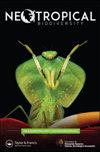Biodiversity conservation: local and global consequences of the application of “rights of nature” by Ecuador
IF 0.8
Q4 ECOLOGY
引用次数: 6
Abstract
ABSTRACT In 2008, Ecuador recognized the Constitutional Rights of Nature in a global first. This recognition implies a major shift in the human-nature relationship, from one between a subject with agency (humans) and an exploitable object (nature), to a more equilibrated relationship. However, the lack of a standard legal framework has left room for subjective interpretations and variable implementation. The recent widespread concessioning of pristine ecosystems to mining industries has set up an unprecedented conflict and test of these rights. Currently, a landmark case involving Los Cedros Protected Forest and mining companies has reached the Constitutional Court of Ecuador. If Ecuador’s highest Court rules in favor of Los Cedros and the Rights of Nature, it would set a legal precedent with enormous impact on biological conservation. Such a policy shift offers a novel conservation strategy, through citizen oversight and action. A ruling against Los Cedros and the Rights of Nature, while a major setback for biodiversity conservation, would be taken in stride by the active social movement supporting these goals, with the case likely moving into international courts. Meanwhile, extractive activities would continue and expand, with known consequences for biodiversity.生物多样性保护:厄瓜多尔实施“自然权利”的地方和全球后果
摘要2008年,厄瓜多尔在全球范围内首次承认了自然的宪法权利。这种认识意味着人性关系的重大转变,从具有能动性的主体(人类)和可利用的对象(自然)之间的关系转变为更加平衡的关系。然而,由于缺乏标准的法律框架,留下了主观解释和可变执行的空间。最近,原始生态系统被广泛特许给采矿业,这引发了对这些权利的前所未有的冲突和考验。目前,一个涉及Los Cedros保护森林和矿业公司的里程碑式案件已提交厄瓜多尔宪法法院。如果厄瓜多尔最高法院做出有利于洛斯·塞德罗斯和自然权利的裁决,这将开创一个对生物保护产生巨大影响的法律先例。通过公民监督和行动,这种政策转变提供了一种新颖的保护策略。一项针对Los Cedros和自然权利的裁决,虽然是生物多样性保护的一个重大挫折,但支持这些目标的积极社会运动将从容应对,此案可能会进入国际法庭。与此同时,采掘活动将继续并扩大,对生物多样性造成已知的后果。
本文章由计算机程序翻译,如有差异,请以英文原文为准。
求助全文
约1分钟内获得全文
求助全文
来源期刊

Neotropical Biodiversity
Environmental Science-Ecology
CiteScore
1.80
自引率
0.00%
发文量
39
审稿时长
24 weeks
 求助内容:
求助内容: 应助结果提醒方式:
应助结果提醒方式:


